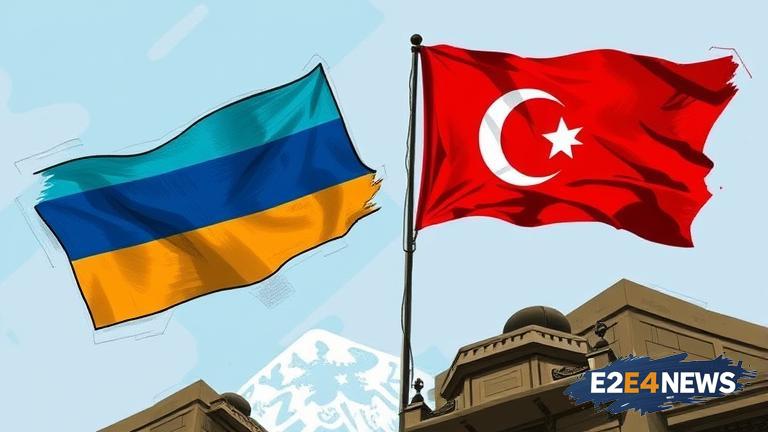The South Caucasus region, nestled between Europe and Asia, has been plagued by conflict for decades. The latest development, a peace agreement between Armenia and Azerbaijan, has brought a sense of cautious optimism to the region. Brokered by the United States, Russia, and Turkey, the agreement aims to put an end to the longstanding dispute over the Nagorno-Karabakh region. The conflict, which has its roots in the early 20th century, has resulted in the loss of thousands of lives and the displacement of hundreds of thousands of people. The peace agreement, signed in late August 2025, has been hailed as a major breakthrough by international leaders. However, many challenges lie ahead, including the implementation of the agreement and the rebuilding of trust between the two nations. The US, Russia, and Turkey have pledged to provide support and assistance to the region, including economic aid and security guarantees. The agreement has also been welcomed by the European Union, which has offered to provide financial and technical assistance to the region. Despite the optimism, there are still many who are skeptical about the agreement, citing concerns over the lack of clarity on key issues, such as the status of Nagorno-Karabakh and the return of displaced persons. The region’s complex history and geography have made it a challenging place to negotiate peace, with multiple factions and interests at play. The involvement of external powers, including the US, Russia, and Turkey, has also added to the complexity of the situation. Nevertheless, the peace agreement has been seen as a major step forward, and one that could potentially pave the way for a more stable and prosperous future for the region. The agreement has also highlighted the importance of diplomacy and international cooperation in resolving conflicts. The South Caucasus region is rich in natural resources, including oil and gas, and has significant strategic importance, making it a crucial location for international trade and commerce. The peace agreement has the potential to unlock the region’s economic potential, and to bring about a new era of cooperation and development. However, the road ahead will be long and challenging, and will require the continued commitment and support of the international community. The agreement has also raised questions about the role of external powers in the region, and the potential for great power competition. The US, Russia, and Turkey have all been involved in the region for decades, and each has its own interests and agendas. The peace agreement has the potential to reshape the regional balance of power, and to create new opportunities for cooperation and competition. As the region looks to the future, it is clear that the peace agreement is just the beginning of a long and complex process. The international community will need to continue to provide support and assistance to the region, and to help build trust and confidence between the parties. The agreement has also highlighted the importance of addressing the root causes of the conflict, including issues related to identity, territory, and security. The South Caucasus region is a complex and multifaceted place, with a rich history and culture. The peace agreement has the potential to bring about a new era of peace and prosperity to the region, but it will require the continued commitment and support of the international community. The region’s future is uncertain, but one thing is clear: the peace agreement is a major step forward, and one that could potentially pave the way for a more stable and prosperous future for the region. The agreement has also raised questions about the potential for similar agreements in other conflict zones around the world. The use of diplomacy and international cooperation to resolve conflicts has been hailed as a major success, and one that could potentially be replicated in other regions. The South Caucasus region is a testament to the power of diplomacy and international cooperation, and a reminder that even in the most complex and challenging conflicts, peace is always possible.
